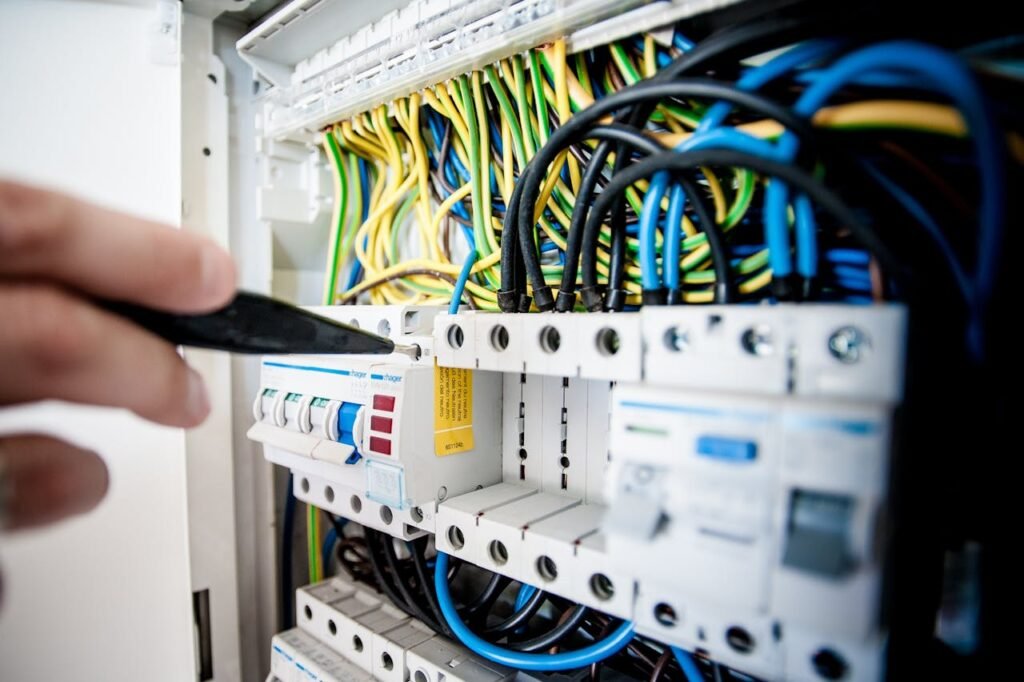Train to Be an Electrician at 50 in the UK: Your Complete Guide
Thinking about a career change in your 50s? Many people in the UK are proving that it’s never too late to start fresh — even in a skilled trade like electrical work.
If you’re wondering whether you can train to be an electrician at 50 in the UK, the answer is a resounding yes. In fact, your life and work experience can be a huge advantage in this field. In this guide, we’ll cover the qualifications you’ll need, the best training options, how long it takes, and the tools that will help you succeed — so you can get started with confidence.
Why Train to Be an Electrician at 50?
The idea of retraining in your 50s might feel daunting, but the benefits are hard to ignore:
- High Demand: The UK has a well-documented shortage of skilled electricians.
- Good Earning Potential: Qualified electricians often earn £30,000–£40,000 per year, with experienced contractors earning more.
- Flexible Work Options: Choose between full-time employment, subcontracting, or running your own business.
- Job Satisfaction: See immediate results from your work and help people solve real problems.
Your maturity, problem-solving skills, and work ethic are traits employers and clients value highly — sometimes even more than raw technical experience.
What Qualifications Do You Need?
Even if you’re starting at 50, you’ll still need to meet the same standards as any other electrician in the UK. The core qualifications are:
- Level 2 Diploma in Electrical Installation
- Introduces electrical principles, wiring, and safety.
- Level 3 NVQ Diploma in Electrical Installation
- Combines on-site work with advanced theory.
- AM2 Assessment
- A final practical exam proving you can work safely and to UK regulations.
If you’ve worked in related fields like engineering, maintenance, or construction, you may be able to fast-track some parts of your training.
Training Routes for Career Changers in Their 50s
You don’t have to take the same path as an 18-year-old apprentice. There are flexible routes designed for adult learners:
- Fast-Track Electrician Courses
Some training providers offer intensive programs designed for career changers. For example, the Qualified Electrician Course from WMD Electrical condenses training and assessments into a shorter timeline — perfect if you want to qualify sooner.
- Part-Time or Evening Courses
These let you work during the day and study in the evenings or weekends. They take longer but are easier to fit around other commitments.
- Experienced Worker Route
If you already have industry experience without formal qualifications, this path assesses your skills and helps you gain the NVQ Level 3 more quickly.
How Long Will It Take?
- Full-Time Fast-Track: 12–18 months
- Part-Time: 3–4 years
- Experienced Worker Assessment: 6–12 months (depending on your skills)
At 50, many learners prefer fast-track options so they can start earning sooner.
Overcoming Common Concerns at 50
“Am I too old to start?”
Not at all. Many people successfully retrain at this age. Employers often appreciate the reliability and professionalism that comes with life experience.
“What about the physical demands?”
While the job can be active, it’s more about skill and precision than heavy labour. Plus, using ergonomically designed tools can reduce strain and make tasks easier.
“Will I be taken seriously as a newcomer?”
Yes. Your work quality, customer service, and punctuality will speak louder than your age.
The Tools You’ll Need to Succeed
Training will teach you how to do the job, but quality tools will help you do it well. Here’s what every new electrician should consider:
- Multimeters and Testers: For accurate electrical readings.
- Insulated Screwdrivers and Pliers: Essential for safety.
- Cable Cutters and Strippers: Make wiring tasks quicker and neater.
- Tool Belt or Organiser: Keeps you efficient on-site.
💡 Tip: Starter electrician tool kits can be more cost-effective than buying each tool separately — and ensure you have all the basics from day one.
Explore Our Electrician Tool Kits →
Costs to Expect When Training
Training costs vary widely depending on the route you choose:
- Fast-Track Courses: £5,000–£8,000
- Part-Time NVQ Routes: £3,000–£6,000
- Experienced Worker Assessment: £1,500–£3,000
While this may sound like a lot, the earning potential and long-term job stability often make it a worthwhile investment.
FAQs About Training as an Electrician at 50 in the UK
Do I need GCSEs?
Not necessarily, though most courses require basic Maths and English skills.
Can I work while I train?
Yes, especially if you choose evening or weekend courses. Some employers also take on trainees part-time.
Are there grants or funding options?
Some local councils and training providers offer payment plans or funding for adult learners.
Will I earn less because I started late?
No — electrician pay is based on skill, experience, and certification, not age.
Why Now Is the Perfect Time to Start
With the UK’s ongoing shortage of skilled tradespeople, there’s a unique opportunity for career changers. By choosing the right training path, you could be fully qualified and earning a competitive salary within 1–2 years.
And remember: the combination of recognized qualifications, practical experience, and professional tools is what will make you stand out in the market.
Conclusion: Your Age Is an Asset
Training to be an electrician at 50 in the UK isn’t just possible — it could be one of the best career decisions you make. Your maturity, dedication, and problem-solving skills give you an edge over younger trainees.
Choose a training route that fits your lifestyle, invest in high-quality tools, and you’ll be well on your way to building a rewarding and profitable career in the electrical industry.

